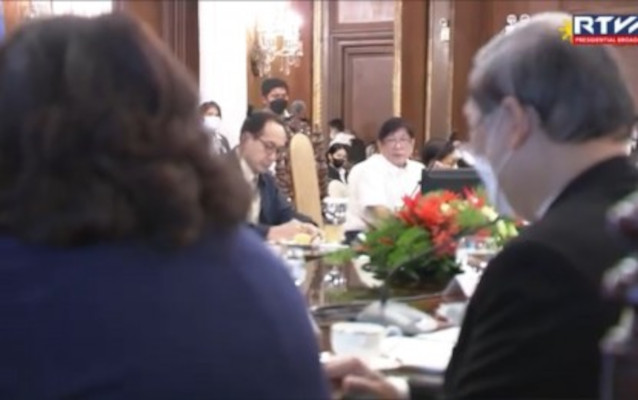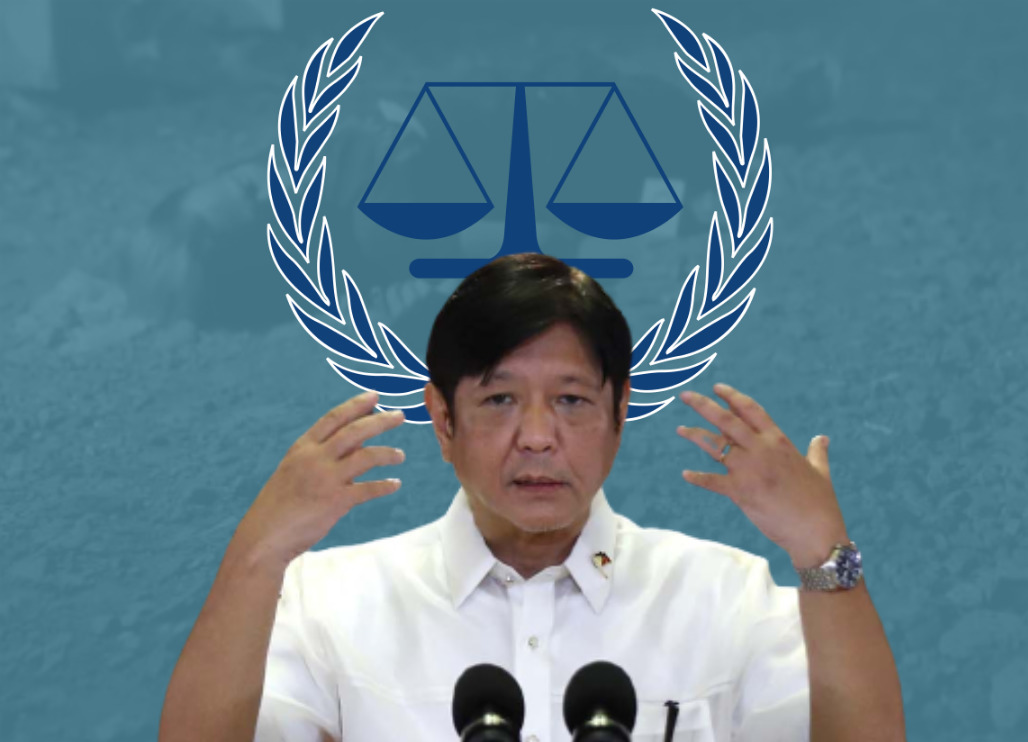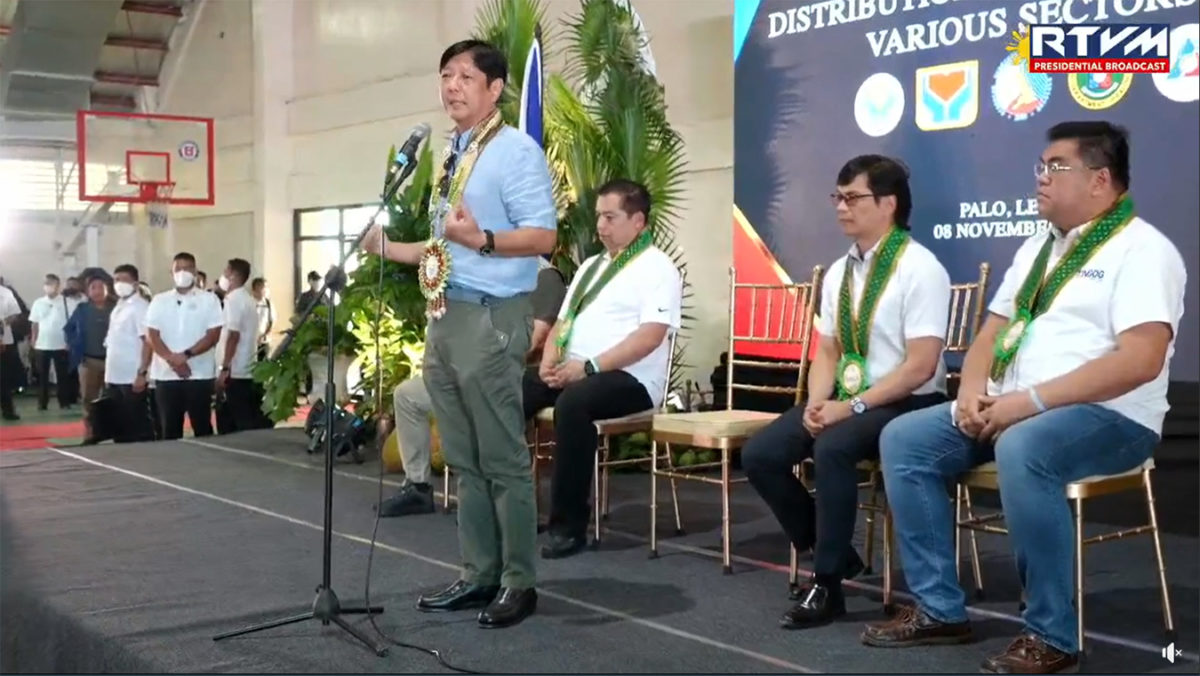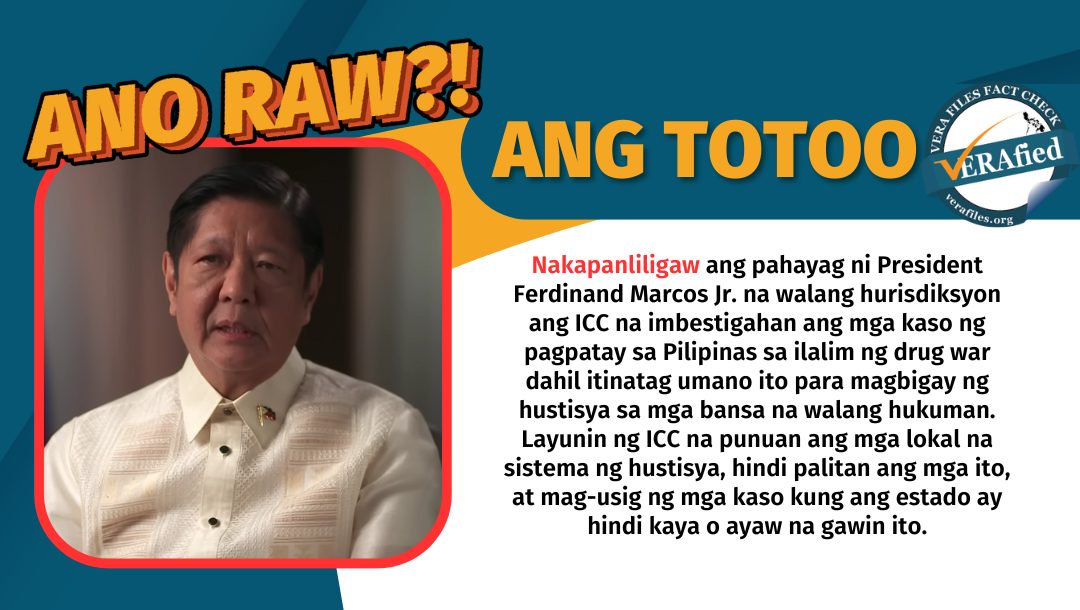Leaders of both houses of Congress were too quick to assure speedy deliberations on the P5.268-trillion proposed national budget for 2023. But wait, a deputy speaker is questioning the lack of transparency in the first full-year spending program of the Marcos presidency.
Soon after the House of Representatives received the budget proposal from the Department of Budget and Management on Aug. 22, Speaker Martin Romualdez assured that “every centavo of this national budget will be spent wisely to implement projects and programs putting primordial considerations into saving lives building and protecting communities and making our economy strong and more agile.”
This was an improvement on the statement of President Ferdinand Marcos Jr. about ensuring that “every peso budgeted by the government would lead to the actual delivery of programs and projects” through a cash-based budgeting system.
Senate President Juan Miguel Zubiri said the proposed 2023 budget only has a “very minimal” increase from this year’s P5.024 trillion appropriations, so he is not expecting lengthy deliberations.
However, Batangas Rep. Ralph Recto, Zubiri’s former colleague in the Senate and is now a deputy speaker at the House, pointed out that the proposed 2023 budget is actually P5.856 trillion because of the P588-billion unprogrammed funds, a lump sum item that can only be released once revenue targets are exceeded.
The P588 billion unprogrammed funds in the proposed 2023 budget is more than double this year’s P251.6 billion unprogrammed amounts. Recto wants Malacañang to itemize the whopping amount.
Recto’s move is a step in the right direction. Having been in the legislature for almost 30 years, Recto has gained enough experience and knowledge in reviewing the annual expenditure program and detecting where the executive could have possibly concealed items to escape rigid scrutiny.
In the DBM proposal, the biggest item under unprogrammed funds is P380.6 billion for “support to foreign-assisted projects.” This was followed by P149.7 billion for “support for infrastructure projects and social programs.” Combined, the amounts already total more than half a trillion pesos, or P530.3 billion to be exact.
While the country needs more infrastructure to resuscitate the economy and spur development, public works projects are an easy magnet for graft and corruption. The huge amount poured into projects for basic services such as health, education and agriculture demand greater controls in the implementing agencies to ensure that funds are used judiciously.
Another item in the proposed 2023 budget that should be gone over with a fine-tooth comb is the P2.201 billion “good governance program” under the Office of the Vice President. The OVP’s proposed appropriation of P2.292 billion for 2023 is two times bigger than the office’s 2022 measly budget of P702.03 million.
The DBM said the decrease and increase in the agency budgets from the prior years were decided on the basis of absorptive capacity. The University of the Philippines system, for instance, would have a reduced funding of P2.5 billion while the Philippine General Hospital would have P893 million less for 2023. Budget Undersecretary Goddes Hope Libiran said this was because UP and PGH had low utilization rates as of end-2021.
Does the huge increase in the OVP budget due to the fact that the previous occupant set the bar for public service too high and Malacañang believes the incumbent can do much more?
Among the first things that Vice President Sara Duterte-Carpio did upon assumption was to set up satellite offices in major regions to help people outside Metro Manila, particularly those living in remote areas, get easier access to social services.
It would be interesting to compare the accomplishments of Leni Robredo in her last full year as vice president and Duterte-Carpio in her first full year to find out how small or huge appropriations play out in the delivery of basic services to the people.
The annual budget is the single biggest measure that Congress examines and approves every year. The budget process entails a thorough review of the programs and projects, the performance of agencies, weaknesses in implementation and judicious use of the allotted public funds.
With so many government agencies whose budget programs are presented to Congress, it should not be easy for congressional leaders to assure a speedy process and, at the same time, promise that every peso in the appropriation would count.
Show us that even with a “supermajority” in both houses, the Congress is not a rubber stamp legislature. Talk is cheap, so they say. People need more than words. Be judicious in scrutinizing the budget and, as the president has said, make sure that “every peso budgeted by the government would lead to the actual delivery of programs and projects.”
The views in this column are those of the author and do not necessarily reflect the views of VERA Files.
This column also appeared in The Manila Times.




